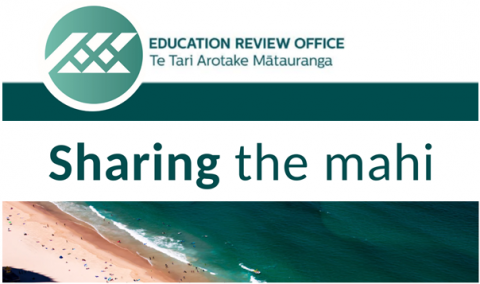
Kia ora,
If I had to choose one word to describe what we’ve seen schools do well this year, it would be innovation. It has been inspiring to see schools pivot with each twist and turn, and get creative with online teaching, hybrid teaching and everything in between to keep learners progressing.
School leaders, teachers and support staff across Aotearoa should be congratulated for making it through another exceptionally tough year. We have seen you continue to adapt as needed to your students’ needs, persevere through times of high staff illness and absence, and still front the classroom with the enthusiasm and drive it takes to share a love of learning.
While some students have remained focused on their learning, some haven’t and have become disconnected from school. Interestingly, Covid-19 isn’t just to blame here. Attendance in our schools has been declining well before the pandemic hit our shores. ERO’s latest research Missing Out: Why aren’t our children going to school? was released last month. It looks at why we have low and declining regular attendance at school. Why is it that our learners aren’t in the classroom? Where are they, and what are they doing instead? What else can be done to get them back into learning?
Collectively, the sector is worried about the amount of time learners are not at school, or those who have simply drifted away from school altogether. The Government’s Attendance and Engagement Strategy aimed at getting learners back into classrooms is going to be a team effort.
Our evaluation partners will be having important discussions with you about attendance. What you know about your own statistics, who’s missing, and why? What are you doing to reach out to these missing learners and is it helping? ERO is tasked with gathering information from schools and reporting back to the Ministry of Education on key themes we’re finding. These insights will inform the Ministry on what’s really happening in schools and what might help get learners re-engaged.
Thank you for sharing your experiences with attendance and strategies that are working for you, or additional challenges you’re having that we should know about. We hope that we can start to see those who have disappeared from school reconnect with their learning – the new year heralds a fresh start.
In this issue of Sharing the Mahi, we look at the tools available to schools to support your own evaluation; unpack Pārekereke - the planning for improvement phase of Te Ara Huarau; and talk to John Byers, Principal of Stanley Avenue School in Te Aroha about his school’s experience with Te Ara Huarau, and the tools they have found are having the most impact for them.
On behalf of all the team here at ERO, I wish you all Meri Kirihimete me te tau hou. I hope you can look back on 2022 and be proud of what you and your team achieved in trying circumstances, and I wish you all a restful break.

Tools to support evaluation
The School Improvement Framework
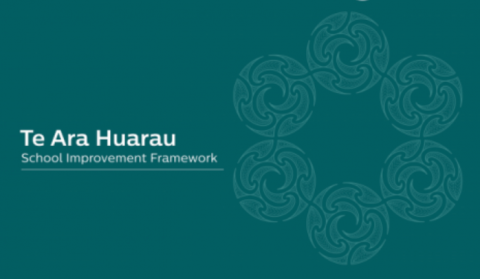
The School Improvement Framework is an improvement and progress framework that schools use throughout the evaluation cycle. It will help you to identify and sharpen your focus for improvement and support you to monitor progress. It has been designed to be used collaboratively. The framework draws on ERO’s School Evaluation Indicators and includes expectations for schools regarding learner outcomes in the Education and Training Act. You can find the School Improvement Framework on our website.
We will be reviewing the framework early in 2023. If you have any feedback for us, please talk to your ERO evaluation partner.
Board Assurance Statement and Self-Audit Checklists
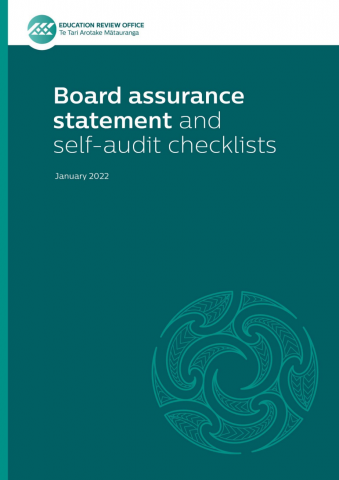
The Board Assurance Statement and Self-Audit Checklists (January 2022) is a reformatting of the 2021 School Self Audit and Assurance Statement (SSAaAS). The Board Assurance Statement and Self-Audit Checklists combine all the sections of the previous SSAaAS into one complete document.
Your evaluation partner is here to help you through this process and to clarify anything that your board is unsure about. We will also want to verify specific aspects that potentially have a high impact on student safety and wellbeing. Doing this early in the evaluation process enables your school to identify and address any areas of non-compliance or to improve practice where necessary.
To support boards with this work, we have developed useful guidelines for the Board Assurance Statement and Self Audit Checklists. Once completed, a Board Assurance with Regulatory and Legislative Requirements Report will be published on ERO’s website. You will find the checklists and statement on our website.
The School Evaluation Indicators
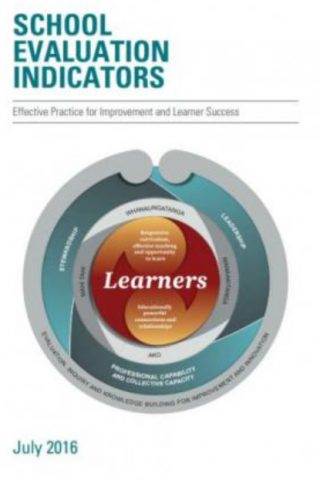
The School Evaluation Indicators are intended for use by schools in your own internal evaluation. They are designed to focus on two areas: outcome and process. The outcome indicators focus on learners and their success. The process indicators focus on the processes and practices that schools use to support their learners to succeed.
Our evaluation partners work with you to decide the focus and design of a review, then collect quantitative and qualitative data relevant to the indicators. This data is considered in relation to the indicators and helps us all to determine how well schools are ensuring that students are on track to becoming ‘successful lifelong learners’. Schools can use these findings to plan how they can continue to improve outcomes for their learners, with a focus on equity and excellence.
You will find the School Evaluation Indicators on our website.
Education Now

Education Now is a free survey tool that gathers the voices of leaders, teachers, students, whānau and the board.
Education Now’s surveys include questions aligned to the School Evaluation Indicators to help schools with useful insights and real data from their whole community. ERO’s Te Ihuwaka researchers will collect and analyse the data, and participating schools will receive a free report summarising information about their school drawn from these surveys. This is helpful for schools’ own internal evaluation and is most useful alongside the School Improvement Framework.
Find out more about Education Now on our website.
Poutama Reo
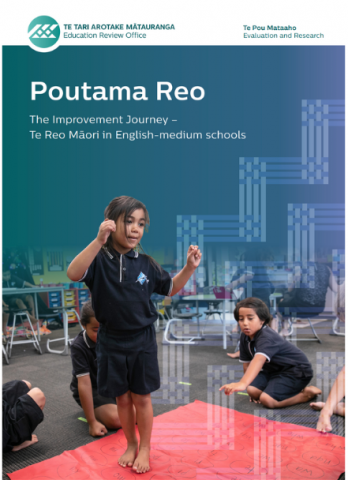
Poutama Reo is a quality improvement framework that provides a progressive pathway for English-medium schools to review and improve their provision of te reo Māori language school-wide. It is also known as the Te Reo Māori Quality Improvement Framework, and forms part of the broader revitalisation of te reo Māori.
Poutama Reo was developed by Te Pou Mataaho and will be introduced to schools next year. You can use Poutama Reo to determine where your school is on your te reo Māori journey and explore possible next steps.
Participants in the Poutama Reo pilot indicated that the framework supplied much needed clarity and guidance for schools.
Your evaluation partner can talk to you about this in the new year.
Understanding the phases of Te Ara Huarau: Pārekereke
In the last edition of Sharing the mahi, we looked at Hauhake, the first phase of the School Improvement Journey. This term, we are taking a closer look at the second phase, Pārekereke - Planning for Improvement.
Kāhore he tārainga tāhere i te ara. It is too late to make your bird spear on the road.
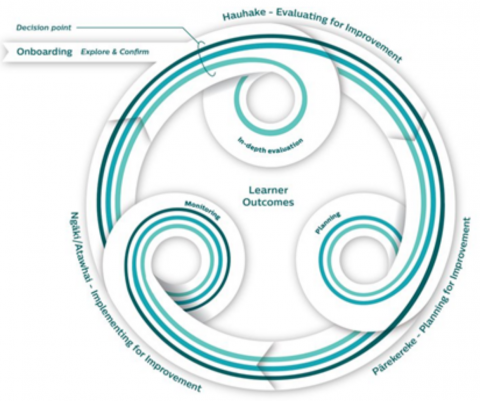
Pārekereke is a collective planning and preparing stage based on an understanding of a range of factors, including knowledge of growth and development; critical conditions for success and who, when and where the work will be undertaken.
Pārekereke - the Planning for Improvement phase requires the school community including whānau, iwi, school, learners and ERO to:
• ensure planning reflects the priorities for learners
• prioritise equity and excellence for all, particularly for Māori and Pacific learners
• prioritise equity and excellence for learners with additional needs.
At this stage, we will share our evaluation knowledge with school leaders and work with you to support internal evaluation capacity and capability building that is responsive to the context of your school and your learners.
You can read more about Te Ara Huarau on our website.
Leader's spotlight
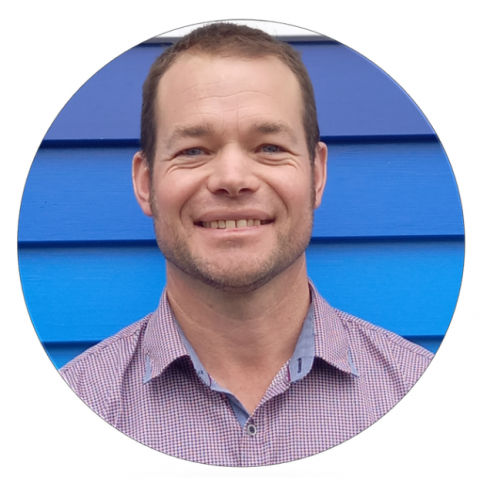
We spoke to John Byers, Principal of Stanley Avenue School in Te Aroha about his school’s experience with Te Ara Huarau, what’s been working well, and what tools have been the most useful for his school’s own evaluation.
Te Ara Huarau is a departure from ERO’s previous method of review. Te Ara Huarau is a partnership between ERO and a school with a focus on evaluation and ongoing improvement. What is your experience of Te Ara Huarau?
This method of review has allowed us to build strong whanaungatanga between our senior leadership team and our evaluation partner, creating a positive and more productive culture with mutual respect. Our evaluation partner has taken the time to get to know our Senior Leadership team individually and collectively and understand our kaupapa. Through this approach, I have seen my lead team grow in confidence and enhance their practice.
The move away from traditional reviews, with limited build up, limited chance of moving past surface whanaungatanga has been welcomed. Every school has a story to tell and a unique context that’s special. Throughout this approach, our direction and purpose has been acknowledged, supported and affirmed.
What tools have you used to support your school’s evaluation? What worked well and why?
The School Improvement Framework is a great self review tool. Initially, it was collaboratively put together for our baseline report* and since then, we have used it to review our progress and direction, actioning our next steps throughout the year, thus becoming part of our self review process at BOT meetings.
With the School Improvement Framework coming out after my Charter and Annual Strategic Plan was put together, it made me reflect on changes moving forward. I included the dimensions of the framework that aligned with our actions and also included our next steps from the baseline report making for a real and living charter. An example of this is that we are now a MAC School (Māori Achievement Collaborative), as we felt we needed to engage with external Te Ao Māori PD to give our ākonga the best chance of achieving educational success as Māori. This is now the focus of our new internal evaluation.
We relied heavily on conducting surveys with a range of stakeholders (ākonga, kaiako and whānau), using google forms to get initial information and to inform our predictions and hunches. We also used focus groups to reach some of the community we sometimes don’t hear from via a survey process.
*refers to the school’s Profile Report.
During your evaluation process, were you surprised by elements of what you found? How did the tools you used help you to get a clear picture of where your school is at?
The evaluation process identified the need to invest in a new learning management system for consistency of practice across the school to support learner progression in Reading, Writing and Maths. We are currently coming towards the end of our third term with the new system, and acknowledge we are still at the early stages of use, with ongoing work to build teachers' confidence and capacity in the long-term. We can already see more learner agency, the beginnings of improved achievement outcomes and improved equity occurring school wide.

For more information about ERO and our mahi please visit ero.govt.nz
To be added to our mailing list for Sharing the mahi, please email us at ricomms@ero.govt.nz